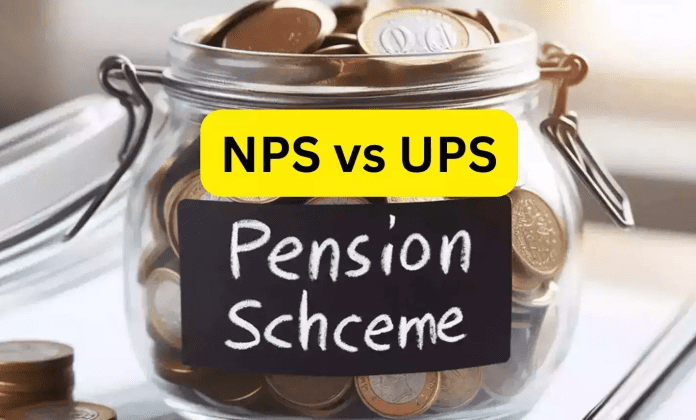UPS vs NPS: By announcing UPS on 24th August, the Central Government has fulfilled the demand of those employees who were demanding guaranteed pension income for a long time. The government has said that employees will have the option to choose either NPS or UPS.
UPS vs NPS: The central government announced the Unified Pension Scheme (UPS) for employees on 24 August. Employees have been demanding a guarantee on their pension income after retirement for a long time. UPS will benefit only those employees who are currently a part of the New Pension System (NPS). Retired NPS subscribers will also be included in it. The question is whether you should switch from NPS to UPS?
Should you switch to a UPS?
Experts say that whether one should switch from NPS to UPS or not will depend on the goals of the employees. Some employees may expect returns like the stock market, while some employees may prefer a guaranteed pension . Dhirendra Kumar, CEO of Value Research, said, “If you believe in India’s growth story and you have many years left for retirement, then it will be beneficial for you to remain in NPS . If you know how the stock market works and you have at least 10-20 years left for retirement, then NPS has the potential to give very high returns.”
Do you want guaranteed pension income?
Suresh Sadagopan, CEO of Ladder7Wealth Planners, says the biggest attraction of UPS is the guaranteed income. The government has said that employees in UPS will get a pension of 50 per cent of their average basic salary of the last 12 months. This can be a big amount for many government employees. He said, “NPS subscribers can consider switching to UPS, as it will provide them with adequate pension for their lifestyle after retirement.”
Is there a difference between UPS and OPS?
It is important to understand that although UPS guarantees pension, it is different from OPS i.e. Old Pension Scheme. UPS is a fully funded scheme. In this, employees will have to contribute 10% of their basic salary and DA. The employer i.e. the government will contribute 18.5%. This is more than the government’s 14% contribution in NPS.
How does OPS work?
Employees in OPS do not contribute to this fund, although they contribute to the General Provident Fund (GPF). This money along with interest is given to the employees at the time of retirement. OPS is a defined pension scheme based on the last salary received by the employees. Preeti Chandrashekhar, India Business Leader, Mercer Consulting, said, “In an inflation linked scheme like UPS, the interest rate and longevity risk for employees is reduced, because the government bears the burden.”
There will be contribution from both the government and employees in UPS
Experts say about UPS that since it is a mix of defined benefit and defined contribution scheme, the corpus will have to be managed very carefully. Both the employer (government) and the employees will have to contribute in UPS. Out of the government’s 18.5 percent contribution, 8.5 percent will go to a separate fund, which will be called Guarantee Reserve Fund.
Also Read- Indian Railways: Vande Bharat Sleeper train may be operational by December 2024, says a report
Once you switch to UPS, there is no option to switch back to NPS
The government will provide more information about UPS in the coming days, which will help them decide whether they should switch to it or not. UPS is an option for employees. Current and new employees will have the option to choose between NPS and UPS. The government has said that once selected, there will be no change in it.
Relates Articles:-
https://www.businessleague.in/indian-railways-vande-bharat-sleeper-train-may-be-operational-by-december-2024-says-a-report/
Unified Pension Scheme: Understand what is Unified Pension Scheme in these 10 points


